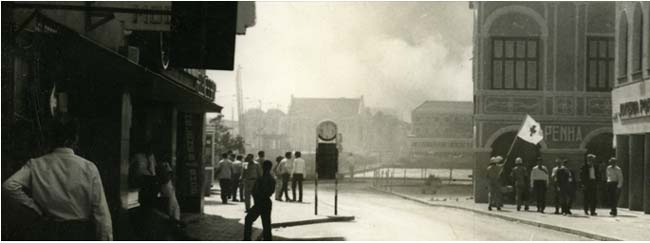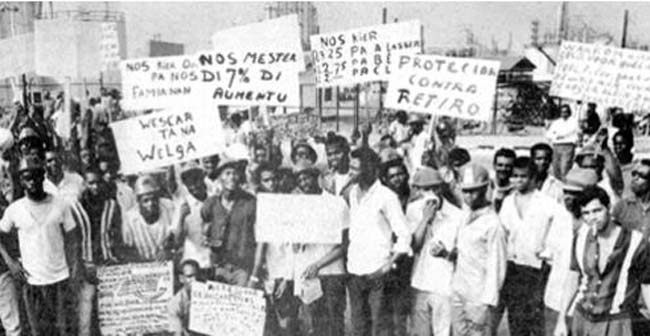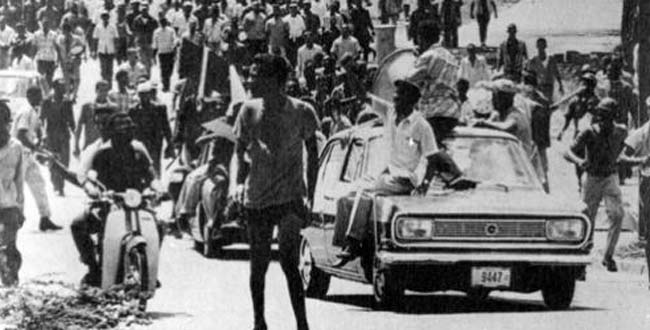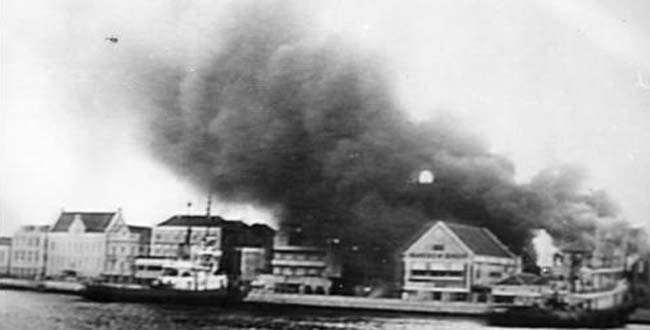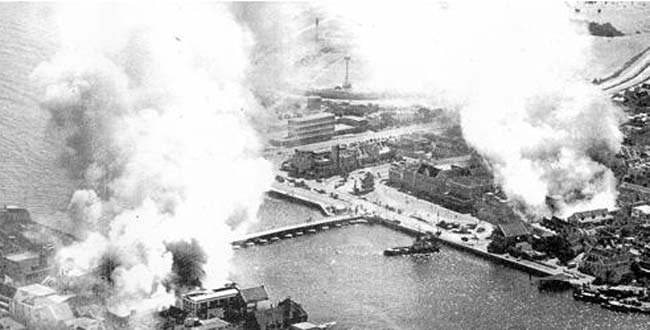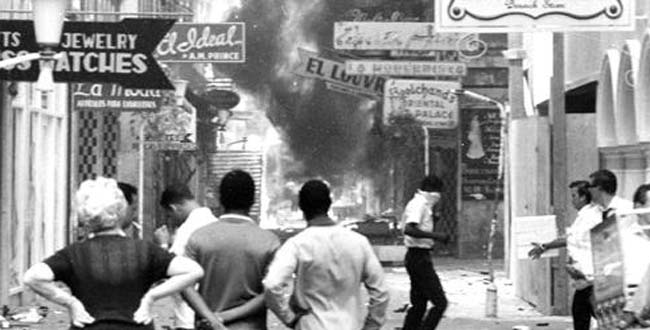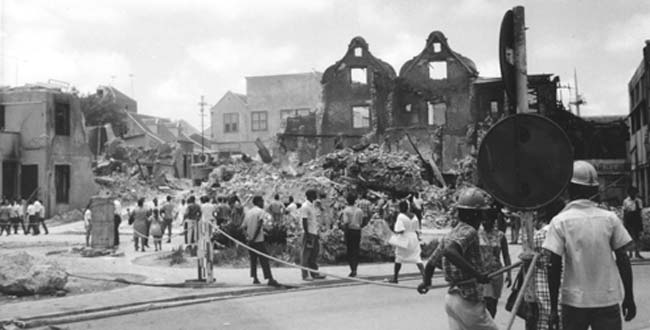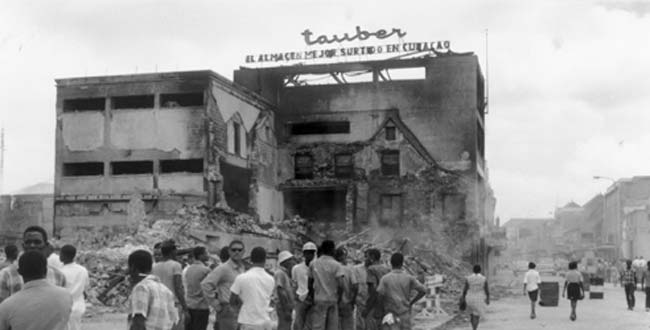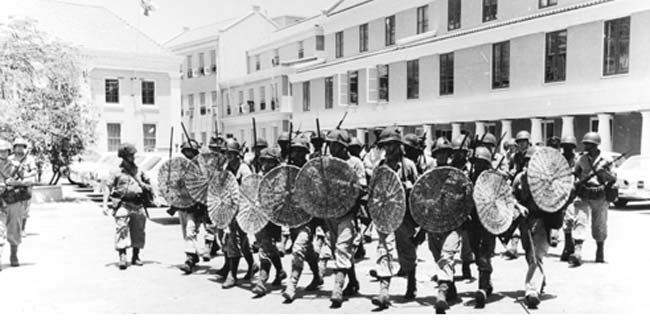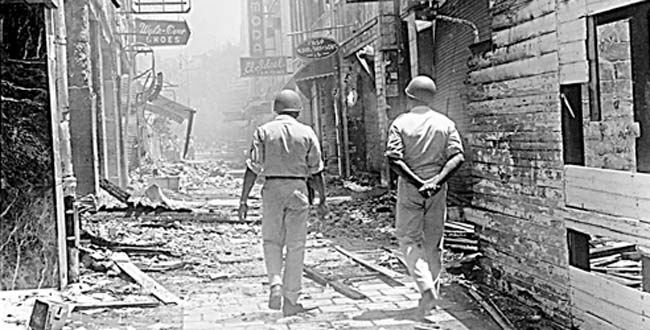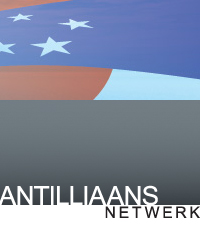There is a scarcity of local history connected to the Curaçao Uprising on May 30th 1969 better known as “Trinta di Mei” in Papiamentu. Tipping the scales after 45 years could be quite surprising in many ways globally, and internal affairs in particular, viewed from a socio-political standpoint.
The end of the 60’s of the last century was marked by a wave of protest in developed countries internationally as well as what is called the underdeveloped third world. The main source of these protests was the demand for higher income and participation of the labour unions in government.
While in certain countries civil rights demonstrations received the attention by those in power, in other parts of the world these demonstrations had no significant impact, leaving the situation unchanged.
The 60’s of the last century also left its traces of rebellious youth, and excessive drug abuse. It was also the season of Woodstock spreading rock music on the planet. These proponents were used in the USA, Great Britain and the Netherlands, mainly to mobilize and neutralize the pressure of labor injustice. The island of Curaçao was no exception to this universal socio-cultural movement. The youth would gather in the cities on Saturdays to express themselves on global and rhetoric symbols like Black Power, socialism and liberty.
Experiencing a switch on cultural level, the labor situation mainly at the Shell Refinery, was becoming tense. Workers felt they were being exploited, accompanied by a high level of racist and discriminative practices.
The heat was turned up when Dutch citizens were put in higher functions, in spite of the presence of locals with the required intellectual preparation, thus spreading tension in commercial and governmental sectors.
Those in authority on the other hand, underestimated the disturbances that have been lingering for quite a while among the workers, which protest lead to the most violent uprising in the history of the island.
Needless to say that violence of any kind should not to be approved. However, tipping the scales 45 years after, it’s an undeniable fact that many local citizens are reaping the fruits of May 30th 1969. The local citizen occupies high positions in government and in the private sector.
If those who gained respect and trust, behaved in an honest and just way towards their fellow citizens in less privileged positions, let history be the judge. Time will tell.

By Nelson M. Pierre
Nelson M. Pierre, born in Curaçao, attained a degree in Sociology at the Central University of Venezuela (UCV). After working as a journalist for several local newspapers, he started his own magazine Know-How Business Review. In 2003 he founded a political party Niun Paso Atras (Not a step backward). He is a Former Island Council, State member and deputy of the Island Territory Curaçao. Pierre now works as a consultant.
Images: Curaçao National Archives

